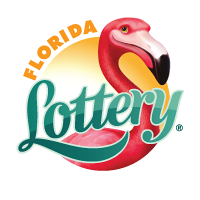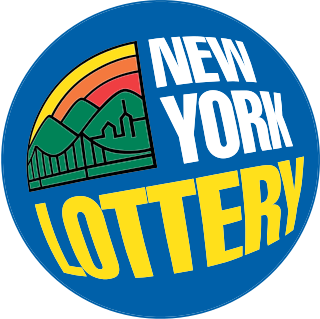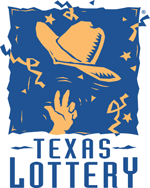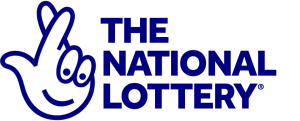Related Research Articles

Mega Millions is an American multijurisdictional lottery game; as of June 30, 2023, it is offered in 45 states, the District of Columbia, and the U.S. Virgin Islands. The first Mega Millions drawing was in 2002. What is now Mega Millions initially was offered in six states; the logo for all versions of the game following the retirement of The Big Game name featured a gold-colored ball with six stars to represent the game's initial membership, although some lotteries insert their respective logos in the ball.
Powerball is an American lottery game offered by 45 states, the District of Columbia, Puerto Rico and the U.S. Virgin Islands. It is overseen by the Multi-State Lottery Association (MUSL), which also manages other large jackpot games such as the Mega Millions. Drawings are held three times weekly on Mondays, Wednesdays, and Saturdays at 10:59 p.m. Eastern Time, at the Florida Lottery's headquarters in Tallahassee.

The Georgia Lottery Corporation, known as the Georgia Lottery, is overseen by the government of Georgia, United States. Headquartered in Atlanta, the lottery takes in over US$1 billion yearly. By law, half of the money goes to prizes, one-third to education, and the remainder to operating and marketing the lottery. The education money funds the HOPE Scholarship, and has become a successful model for other lotteries, including the South Carolina Education Lottery.

The Florida Lottery is the government-operated lottery of the U.S. state of Florida. As of 2022, the lottery offers eleven terminal-generated games: Cash4Life, Mega Millions, Powerball, Florida Lotto, Pick 2, Pick 3, Pick 4, Pick 5, Fantasy 5, Cash Pop, and Jackpot Triple Play. A player must be 18 or older to play.

The Pennsylvania Lottery is operated by the Commonwealth of Pennsylvania. The Lottery was created by the Pennsylvania General Assembly on August 26, 1971; two months later, Henry Kaplan was appointed as its first executive director. The Pennsylvania Lottery sold its first tickets on March 7, 1972 and drew its first numbers on March 15, 1972.
Lotteries in Australia include various lottery related products licensed by The Lottery Corporation, The Lottery Office and Lotterywest Australian lottery companies. Lotteries operators are licensed at a state or territory level, and include both state government-owned, not-for-profit and private sector companies. Most major Lotteries have now moved into the online marketplace.

North Carolina has one of the United States' youngest lottery systems, having been enacted in 2005. The North Carolina State Lottery Act created the 9-member Lottery commission who was charged with overseeing all aspects of the education lottery. 100% of North Carolina Lottery net proceeds go directly to benefit the state's education, with the current figure sitting at more than $10 billion since its inception in 2006. By law, lottery funds go to pay for school construction, need-based college financial aid, transportation, salaries for non-instructional support staff, and pre-kindergarten for at-risk four-year-olds. The State Lottery Act outlines how each and every dollar produced by the lottery will be spent. The revenue distributions are as follows: 51% was paid out in prizes, 38% was transferred into the education fund, 7% was paid to the retailers who sold lottery tickets, and 4% went to general lottery expenses.

The New York Lottery is the state-operated lottery in the US state of New York that began in 1967. As part of the New York State Gaming Commission, it provides revenue for public education and is based in Schenectady.
The Maine Lottery is run by the government of Maine. It is a member of the Multi-State Lottery Association (MUSL), whose flagship game is Powerball. It was founded in 1974 after being approved through a voter referendum.

The Connecticut Lottery Corporation, also called the CT Lottery, is the official lottery in Connecticut. It was created in 1971 by then-Gov. Thomas Meskill, who signed Public Act No. 865. The first tickets were sold on February 15, 1972. The Connecticut Lottery offers several in-house drawing games; Connecticut also participates in Mega Millions and Powerball; each are played in 44 states, the District of Columbia, and the U.S. Virgin Islands.

The Texas Lottery is the government-operated lottery available throughout Texas. It is operated by the Texas Lottery Commission, headquartered in downtown Austin, Texas.

The New Jersey Lottery is run by the U.S. state of New Jersey. Its In-house draw games are: Pick-3, Pick-4, Jersey Cash 5, Pick-6, Quick Draw, and Cash Pop. Its multi-jurisdictional draw games are: Cash4Life, Mega Millions, and Powerball. The Lottery also sells Fast Play and scratch-off tickets. The New Jersey Lottery is headquartered at One Lawrence Park Complex in Lawrence Township, Mercer County.

The Hoosier Lottery is the official state lottery of Indiana, and is the only US lottery that uses the state's nickname as its official name. It is a member of the Multi-State Lottery Association (MUSL). The Hoosier Lottery sells scratch-off tickets; its draw games include Mega Millions, Hoosier Lotto, Powerball, Cash 5, and Poker Lotto.
The Michigan Lottery was initiated under the authority of Public Act 239 in 1972, and collects funds to support Michigan’s public school system.

The Illinois State Lottery is an American lottery for the U.S. state of Illinois, operated by Camelot Illinois.
The Wisconsin Lottery is run by the Wisconsin Department of Revenue and was authorized in 1988 by the state legislature. It is a member of the Multi-State Lottery Association (MUSL). Its games consist of Mega Millions, Powerball, Megabucks, Supercash!, Badger 5, Pick 3, Pick 4, All or Nothing, and scratch games. Since its founding, it has generated $4.6 billion for property tax relief for state residents.
The South Carolina Education Lottery (SCEL) began in 2002.

The National Lottery is the state-franchised national lottery established in 1994 in the United Kingdom. It is regulated by the Gambling Commission, and is currently operated by Camelot Group, to which the licence was granted in 1994, 2001 and again in 2007, but will be operated by Allwyn Entertainment Ltd from 2024.
The Arkansas Scholarship Lottery is run by the government of Arkansas.

The Massachusetts Lottery was established on September 27, 1971, following the legalization of gambling by the Massachusetts General Court, the legislature of the Commonwealth. The Lottery is administered by the Massachusetts State Lottery Commission. It is a member of the North American Association of State and Provincial Lotteries (NASPL) since 1972.
References
- ↑ "Arizona Lottery Announces New All or Nothing Draw Game". May 14, 2014. Retrieved December 1, 2015.
- ↑ "Georgia Lottery results" . Retrieved December 14, 2015.[ permanent dead link ]
- ↑ "Welcometo All of Nothing". Archived from the original on 2015-12-15. Retrieved December 14, 2015.
- ↑ All-or-Nothing at the Massachusetts Lottery
- ↑ "All or Nothing past results" . Retrieved December 14, 2015.
- ↑ "Texas Lottery – All or Nothing Winning Numbers" . Retrieved December 14, 2015.
- ↑ "Wisconsin Lottery - All or Nothing".
- ↑ "Illinois Lottery winning number search" . Retrieved December 15, 2015.
- ↑ "О переименовании лотереи "12/24" - Столото".